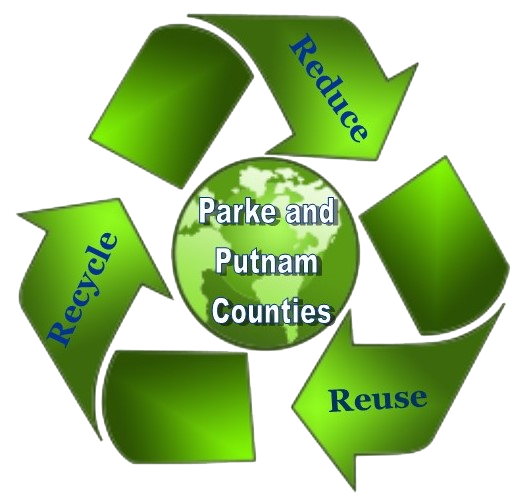What is Household Hazardous Waste (HHW)?
Household hazardous waste is any product labeled: toxic, poison, corrosive, flammable, combustible or irritant that is disposed of. A typical home can contain a vast array of household hazardous products used for cleaning, painting, beautifying, lubricating and disinfecting the house, yard, workshop and garage. The chemical-based household products from a single home may seem insignificant; but, when millions of homes across the United States use similar products, the combined effect of improper handling, storage and disposal becomes a major problem. The health and safety of people and animals, as well as the health of our communities and the environment is endangered when these types of products are discarded in household garbage, sinks or storm drains.
The following are examples of household hazardous which can safely be disposed of at the District’s annual Tox-Away Days (see “Programs” page of this website).
Lawn/Garden-Care Products
Bug spray
Fertilizer
Pesticide/insecticide
Fungicide
Herbicide
Weed killer
Paint and Paint-Related Products
Oil-based paint
Turpentine paint stripper
Rust remover
Paint thinner
Varnish
Automotive Fluids and Batteries
Used motor oil and filters
Gasoline and diesel fuel
Auto body repair products
Antifreeze
Brake and transmission fluid
Lead acid batteries
Beauty Products and Medicines
Alcohol-based lotions
Isopropyl alcohol
Medicine
Nail polish and nail polish remover
Hair relaxers, dyes and permanents
Products in aerosol cans
Household Cleaners
Ammonia-based cleaners
Oven and drain cleaners
Floor care products
Aerosol cleaners
Metal polishes and cleaners
Tub, tile and toilet bowl cleaners
Miscellaneous
Televisions/Computer monitors
Mercury thermometers
Mercury batteries
Photographic chemicals
Lighter fluid
Fiberglass epoxy
Swimming pool chemicals
Dangers of improper disposal!
When used, stored and disposed of according to label directions, most household products pose little hazard to people or to the environment. However, improper use, storage and disposal of household hazardous products can potentially harm our families and pets, pollute our neighborhoods and contaminate our environment.
When thrown in with regular trash, household hazardous waste can injure sanitation workers and may end up in landfills not intended or permitted for those types of wastes. When poured on the ground, household hazardous waste may seep into and contaminate our groundwater and/or the ocean.
When flushed down a toilet, sink or drain, household hazardous waste is transported through the sewage system to treatment plants that are not equipped to handle hazardous waste. At treatment plants, hazardous waste interferes with the biological treatment process and can contaminate the effluent that runs into the ocean and the biosolids that cannot then be reused as fertilizer.
When hazardous waste is thrown on the street, it goes down storm drains leading into our area waterways, impacting the Pacific Ocean and our local beaches.
How to Reduce Household Hazardous Waste!
One way to reduce the generation of household hazardous waste and prevent pollution from these dangerous products is to find non-hazardous or less hazardous alternative products. This will help protect the health of your family, neighbors and the environment.
When making your choices about the use of hazardous and non-hazardous products, remember that your decision can affect the way manufacturers design products. Before purchasing a product, read the label carefully to make sure it will do what you want it to do. Once you buy something you are responsible for disposing of it properly.
Buy just what you need to do the job and use it up. Give leftovers to a friend, neighbor, business or charity that can use them. Use products containing hazardous materials and fertilizers sparingly or use a non-hazardous/less hazardous alternative.
Select water-based products over solvent-based products when available (e.g., paint, glue, shoe polish). Avoid aerosol sprays. Choose pump spray or other alternatives.
Be smart when you apply pesticides or fertilizers. Read the label and do not apply more than is recommended. Do not overwater after application and do not apply before a rain – not only will you lose most of the pesticides or fertilizer through runoff, but you also will be harming the environment.
Have a professional change your motor oil. For a few dollars more, you not only save yourself time and energy, but it’s more likely that the used motor oil collected will be recycled. Ask for re-refined motor oil for your vehicle. Re-refined oil is oil that has been recycled and then reprocessed so it is as good as or better than virgin oil. By using re-refined motor oil, you are closing the loop and saving natural resources. Dispose of household hazardous wastes according to the directions on the container, or at an authorized household hazardous waste collection facility or used motor oil recycling center.
